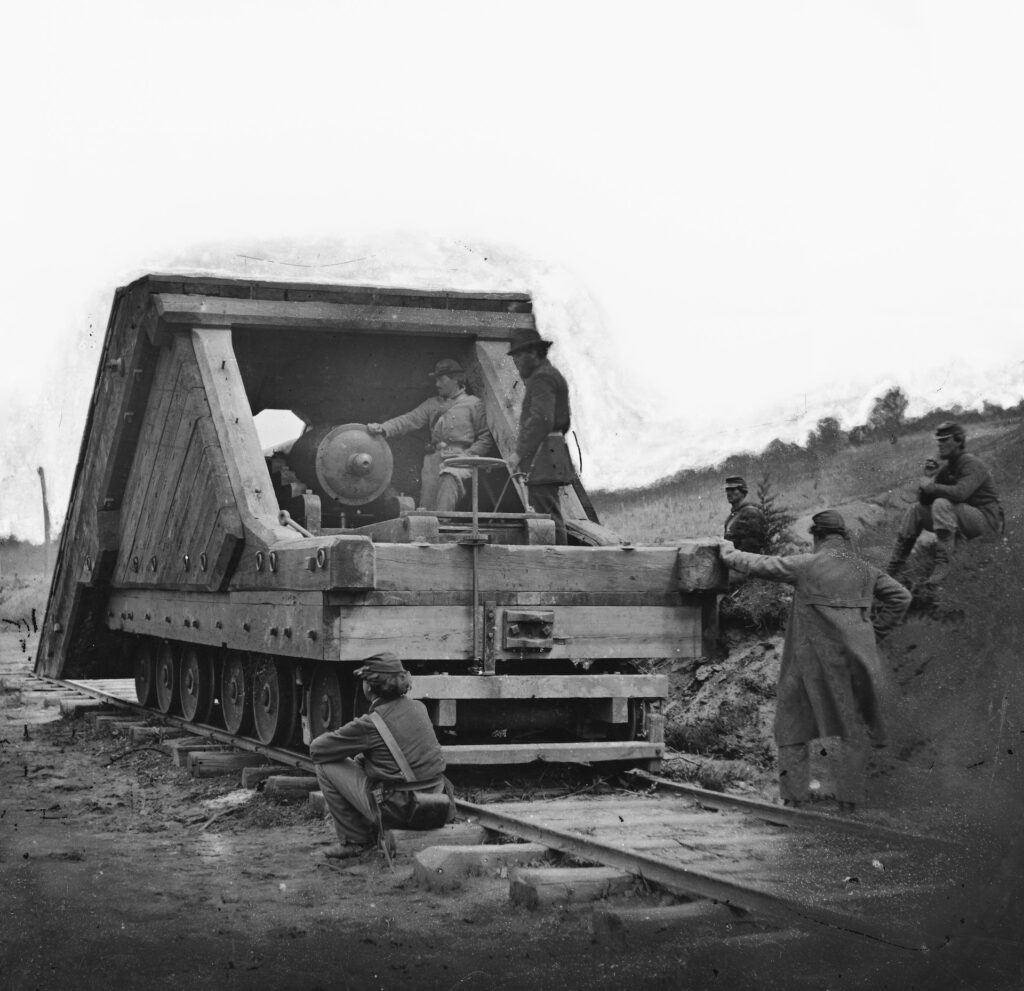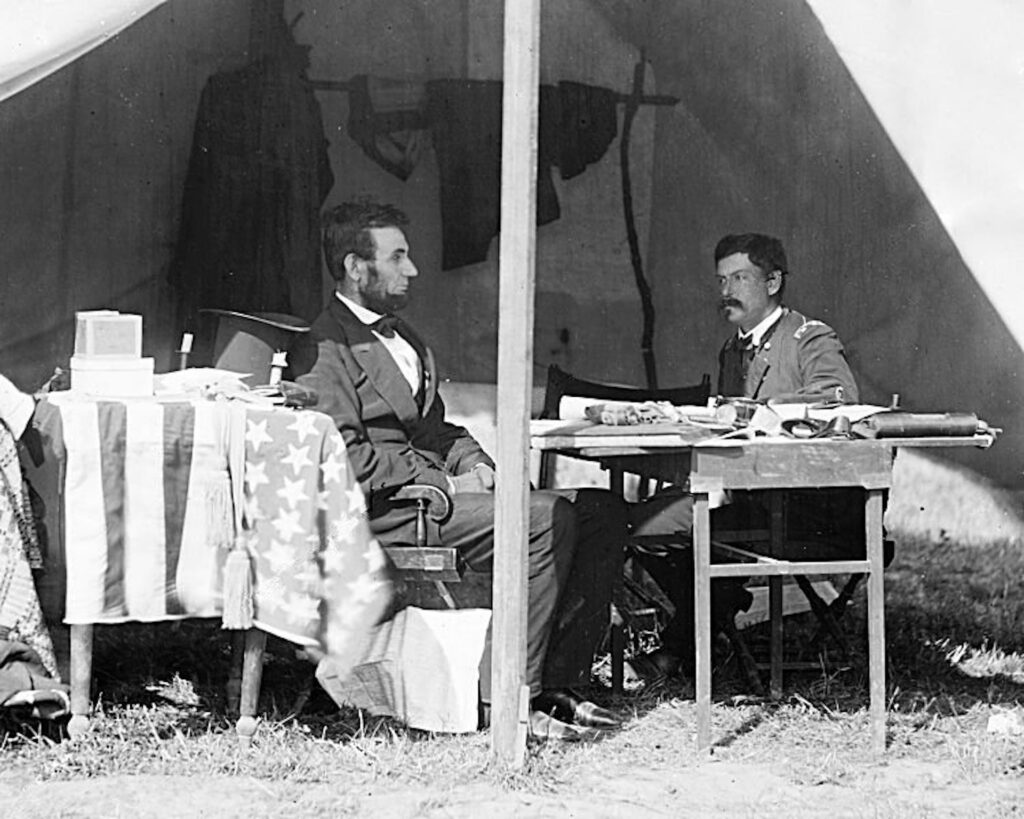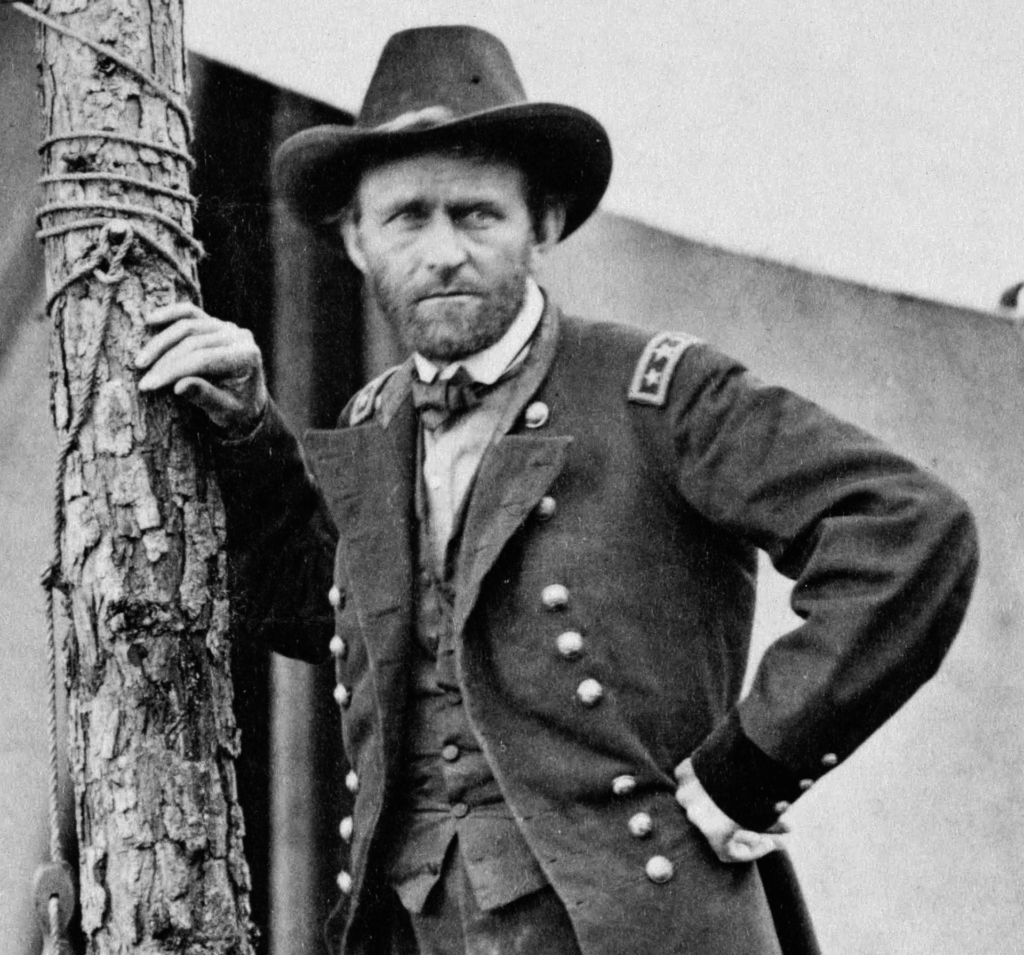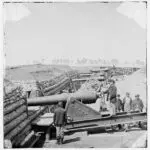The Union (also known as the North) won the American Civil War. The main reasons for the Union’s victory were its superior resources (including manpower), transportation, and industrial capacity, as well as the effective leadership of President Abraham Lincoln and the military strategies of General Ulysses S. Grant.
Moreover, the Union’s decision to abolish slavery and the support of abolitionists in the North were essential factors in the Union’s success. The Confederacy (or the South) had fewer resources and was essentially an agrarian-based economy, which made it harder to sustain a long war. The Confederacy was also divided by internal conflicts and lacked a strong central government.
As with most military history, the question of how the war was ultimately won, or lost, inspires much debate. The following blog will discuss some of the core reasons the Union achieved victory in 1865.
If you want to expand your own knowledge of Civil War history, please consider joining us for one of our Civil War Tours in Virginia.

The disparity of resources
The Union had several advantages in resources that helped them win the American Civil War. This included more factories and industrial infrastructure, which allowed them to produce more weapons and supplies.
A much larger population was also at the disposal of the Union. The North had a population of around 24 million, and the South had a population of just 9 million (of which 4 million were enslaved people).
The Union also had a better transportation system, including more railroads, making moving troops and supplies easier (more on this below). Additionally, the Union had a stronger navy, which helped them control the waterways and blockade Confederate ports, limiting the South’s ability to import supplies abroad. These superior resources allowed the North to sustain a longer and more effective war effort.
A special note on the railroads
Train travel was still in its infancy during the American Civil War. However, the impact of the railroads cannot be overstated – they played a significant role in helping the Union win the war.
This is why historians such as William G. Thomas and John E. Clark have focused on the central importance of railroad superiority in winning the war.
The railways allowed the Union to quickly move troops and supplies to where they were needed, facilitating a more effective war effort. The railroads also allowed the Union to coordinate their actions and respond to Confederate movements more efficiently.
The Union was able to use the railroads to transport troops to the front lines, bring in reinforcements, and evacuate wounded soldiers. The railroads also made it easier for the Union to supply their troops with food, ammunition, and other necessities, allowing them to sustain their army for longer periods.
In contrast, the Confederate army often could not access the supplies it needed due to Union control of the railroads and the lack of effective transportation infrastructure in the South. In 1861, 22,000 miles of track had been laid in the Northern states, while just 9,500 miles had been laid in the South – the advantage provided by the railroads was a key factor in the Union’s eventual victory.

The leadership of Lincoln
Abraham Lincoln’s leadership was a major factor in the Union’s victory in the American Civil War. Lincoln served as the commander-in-chief throughout the war and made many crucial decisions that helped to steer the Union to victory. He demonstrated remarkable determination and tenacity, never losing sight of his goal of preserving the Union and ending slavery.
Lincoln’s most important contribution was his ability to choose and support capable military leaders. He appointed men such as Ulysses S. Grant and William T. Sherman, who effectively led Union forces to victory on the battlefield.
Lincoln also showed great strategic acumen, recognizing the importance of controlling the Mississippi River and its tributaries and making this a top priority for the Union war effort. This was part of General Winfield Scott’s “Anaconda Plan” which used the navy to blockade the entire southern coast & waterways, thus strangling their supplies and resources. He also played a key role in maintaining the support of the Northern public and Congress, helping to sustain the war effort despite significant losses and setbacks.
Finally, Lincoln’s powerful oratory and writing skills helped to inspire the Union cause and to rally the country behind him. He delivered several famous speeches, including the Gettysburg Address, which helped to frame the conflict as a struggle for freedom and liberty rather than just a war to preserve the Union.
Lincoln’s leadership helped maintain the Northern people’s morale and keep the country focused on the ultimate goal of victory.

The generalship of Ulysses S. Grant
Ulysses S. Grant was a key figure in the Union’s victory in the American Civil War. As a general, he was known for his tactical brilliance, strategic vision, and unwavering determination. He led the Union army to several significant victories, most notably at Shiloh, Vicksburg, and Chattanooga, which helped to turn the tide of the war in favor of the Union.
Grant’s military leadership was characterized by his aggressive warfare approach and willingness to take risks. He was not afraid to engage the Confederate army in battle, even when the odds were against him. His persistence and tenacity helped to wear down the Confederate forces and eventually led to their surrender.
He also demonstrated a mastery of logistics and effectively coordinated the movements of his troops and supply lines, allowing the Union army to sustain a longer and more effective war effort.
In addition to his military achievements, Grant was known for his compassion and his ability to treat both Union and Confederate soldiers with dignity and respect. He issued orders to protect prisoners of war and treat all wounded soldiers, regardless of their allegiance.
This helped maintain the support of the Northern public and preserve the integrity of the Union cause. Grant’s military leadership was crucial to the Union’s victory in the Civil War, and he remains one of the most revered military leaders in American history.
The abolition of slavery
The abolition of slavery helped the Union win the American Civil War in several ways.
It helped to galvanize Northern support for the war effort. The Union’s initial goal was to preserve the Union, but as the war progressed, the issue of slavery became increasingly central to the conflict. The abolition of slavery helped to frame the war as a struggle for freedom and liberty rather than just a war to preserve the Union. This gave the Union a moral and ideological advantage, which helped to sustain Northern support for the war effort.
The Emancipation Proclamation also had an immediate effect on populations in the South. It has been estimated that around 20,000 enslaved people were immediately freed by the act in Union-held areas of the Confederacy. Further, enslaved people had been part of the engine of war for the Confederacy. They produced and prepared food, made uniforms, repaired roads and railways, worked the farms, and much more besides. Once news of the Proclamation spread, arousing hopes of freedom, thousands of enslaved people escaped to Union lines.
And linked to these immediate changes in Southern populations, the Confederate economy took a major blow. The Emancipation Proclamation and the Union army’s subsequent actions to recruit and arm former slaves weakened the Confederacy’s ability to produce crops and other goods, weakening its ability to sustain its war effort.
The abolition of slavery was a critical factor in the Union’s eventual victory in the Civil War and helped to secure the eventual end of slavery in the United States.

Conflict within the Confederacy
Internal conflicts within the Confederacy contributed significantly to its failure in the American Civil War. The Confederacy faced numerous challenges and divisions throughout the war, including disagreements over strategy, resource allocation, and military leadership. These internal conflicts undermined the Confederate war effort and weakened its ability to prosecute the war effectively.
One central area of conflict was over strategy and resource allocation. The Confederate government struggled to coordinate the efforts of its various military leaders, leading to conflicting priorities and inefficient use of resources. This resulted in duplication of effort and a lack of coordinated strategy, which weakened the Confederacy’s ability to mount an effective defense against the Union.
Another source of conflict was the tension between the Confederate government and the individual states. The Confederate constitution was seen as weaker than the U.S. Constitution. Many states resisted central authority and acted independently, pursuing their interests instead of those of the Confederacy. This lack of unity and cooperation among the states made it more difficult for the Confederate government to pursue a coordinated and effective war effort.
Additionally, there were disagreements over military leadership, with various generals and politicians vying for power and influence. This infighting weakened the Confederate army, reduced its effectiveness on the battlefield, and undermined public support for the war effort.
Overall, the internal conflicts within the Confederacy played a significant role in its failure in the American Civil War.
Conclusion
The American Civil War was won by the Union, and the primary reason for their victory was the combination of superior resources, effective military strategies, and the determination to preserve the unity of the country.
If you want to delve deeper into American Civil War history, consider joining Battlefield Tours of Virginia’s Tour With the Author experiences – in-depth tours of Virginia’s Civil War sites in the company of published Civil War historians.
If you have any questions about our services, please get in touch.
Continue exploring US Civil War history with How Did the American Civil War End?.


